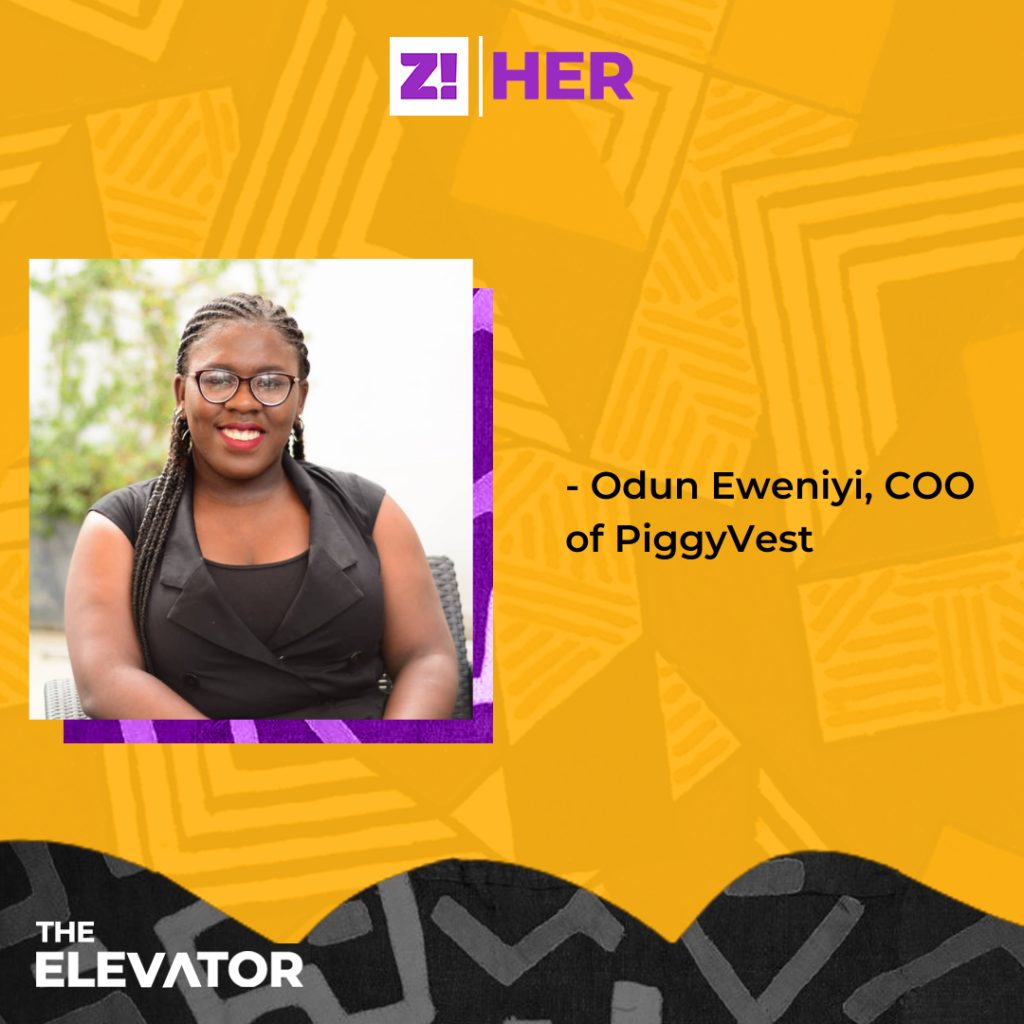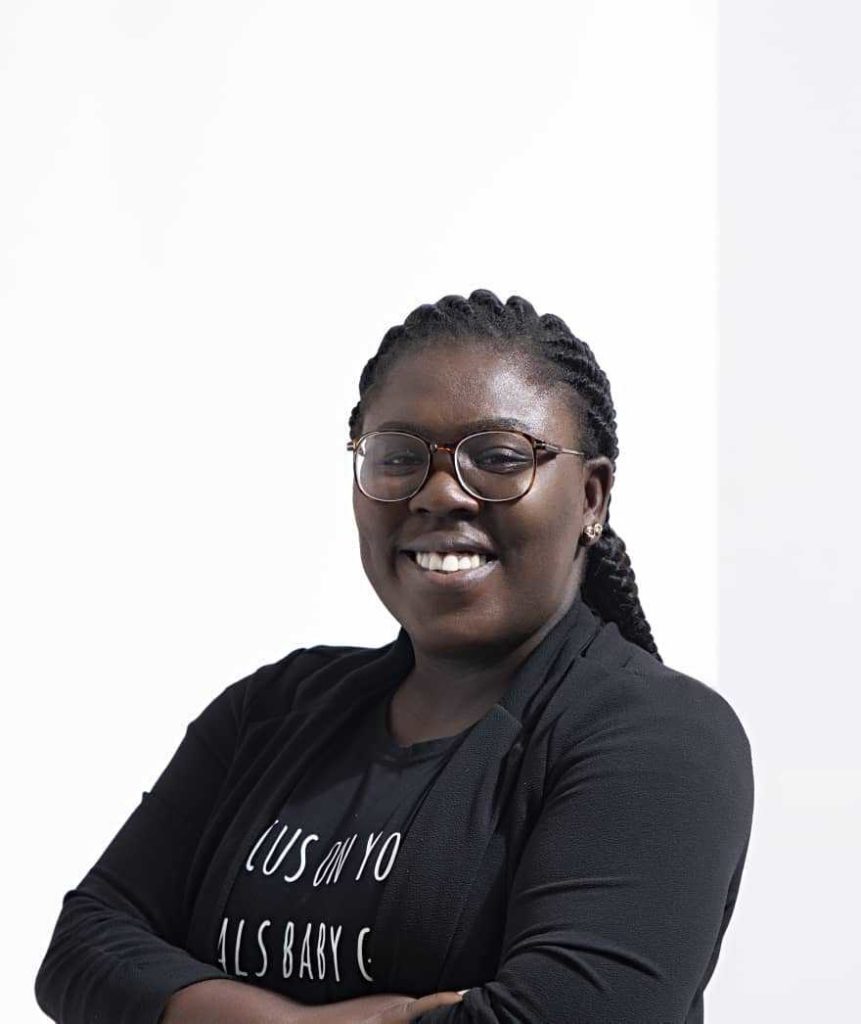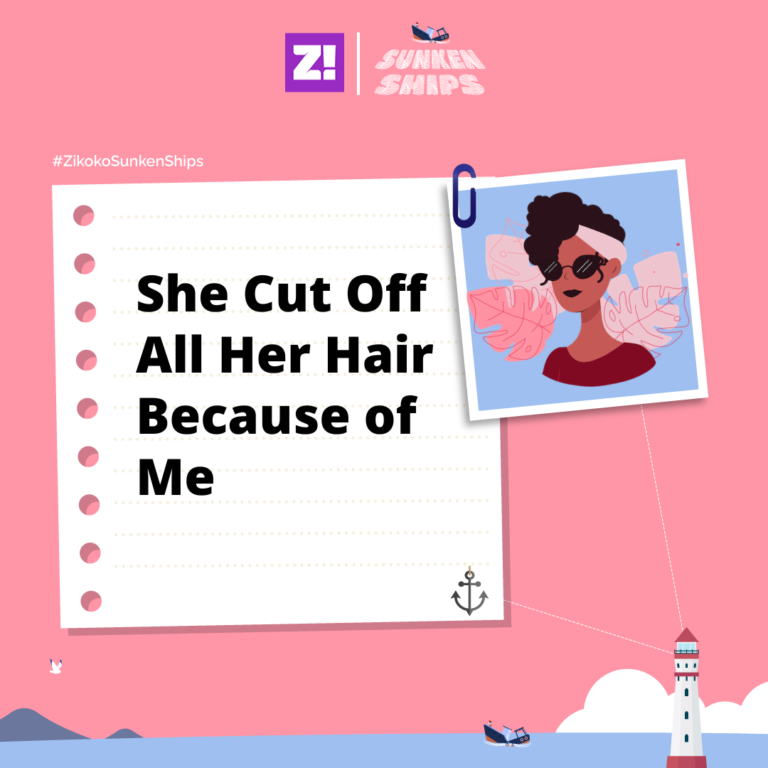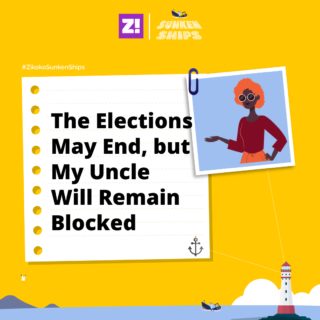The Elevator is a limited Zikoko series that details the growth of young successful Nigerian women. We tell their stories every Monday by 12 p.m.
After starting and failing at more startups than she can remember, 27-year-old Odun Eweniyi, founded Piggvest, one of the most successful fintechs in Nigeria. In today’s episode of The Elevator, she talks about working in a male-dominated industry, the lesson’s she’s learned from leading startups and why she’s interested in creating safe spaces for women.

What did you want to be when you were little?
When I was little, I was sure I wanted to become a university professor or researcher. My parents are university professors. They were also both writers and wrote a lot of academic books. I really liked watching my dad work. So, the plan was to do something academic.
What did you eventually study?
Computer engineering. People tend to classify the course as extremely serious, but a lot of my thinking about the world is informed by the fact that I read computer engineering. I am always inspired to find solutions to problems. I have about eight tattoos, and four of them are about physics.
Did you ever do anything related to computer engineering?
Well, yeah. In August of 2013, I was coming back from an interview where I had just turned down a job offer to write for a fashion blog. They were offering to pay me #20,000 to work Monday to Saturday from 9 a.m. to 6 p.m. on the island; meanwhile, I lived in Ogba. While I was walking home, my friend, Somto, who lived in the same estate as I did, leaned out of the window and called me into his house. He told me about a project he was working on with a few other people. That was how I started working for Parolz. I didn’t even know what a start-up was, but here I was joining one at 19.
Omo, an entrepreneur at 19.
Technically, it was six months to my 20th birthday, but yes. An entrepreneur at 19.
And what did Parolz do?
Well, Parolz was a company that tried to get discounts to the customers that registered under us. I worked as a social media manager for the Parolz team for three months, then we got the idea for PushCV, a startup to help people get jobs.
So your second startup.
Yes. While we were running PushCV, we started some other companies like 500dishes and 99staff. These start-ups failed. There were a lot of factors that affected the failure of each start-up, but we tried to not let it get to us too much, and just used it as learning points for the next one. It motivated me to keep pushing. In 2016, we got the idea for PiggyVest.
Amongst these startups, Piggyvest seems to be the one that stuck. Do you know why?
For PiggyVest, it was the right place, right time, the right idea and a healthy amount of luck. We were also able to apply all the things we had learnt from the other failed start-ups into running PiggyVest.
In the first year, we funded the start-up with our own money. Then in March of 2017, we got the first injection of funding with $50,000 from BH capital.
Like every venture you go into, you hope that it is successful, but you really never ever know. I did not know it would be as big as it is now. We built it for young Nigerians. We want to help young people manage their funds so they can get financial freedom. I think one of the things that makes it so popular is the fact that it’s really easy to use.
If you want to create your own start-up, just go for it. We had a lot of failed start-ups because we just went for it. It’s also the reason we have PiggyVest right now.
What’s your role in the company?
Well, I am the COO. My daily activities change depending on the position the company is in at the time. My job as an operations person cuts across operations, finance, people operations, fundraising, investment management. If we are in fundraising mode, my job will be to liaise with investors. It sounds like a very vague job description, but, a COO’s job is optimisation and making sure there are enough resources to go around, and it’s a very interesting job for people like me that do not like sitting down in one place.
“Male-dominated” fields like yours usually come with a lot of sexism. How do you navigate that?
I call out a lot of sexist behaviour and I use my platform to call it out as well. I don’t allow sexism to get to me enough to derail the focus and the goals. I think that representation matters, and I want young girls to be able to look up and see women like them trying — because we’re here to stay.
It is very important that you do the work for all the women that are coming after you. My advice for young girls who want to work in tech, no one can stop you. Aim very high, work very hard and care very deeply.
Was your need for representation a core decision in co-creating Feminist Coalition?
Dami and I felt that the fight for women’s rights needs to, at its core, be focused on money and legislative power for women, so we invited more women and Feminist Coalition came to be. Both things are central to the advancement of women in any society, and at the moment, in Nigeria and across Africa, men rule both. For women to achieve equality or anything remotely close, we need to consolidate both. We want to move the needle for the progression of women’s rights in Nigeria by focusing on three pillars: women’s rights and safety, financial equality for women; and legislative power for women.
Have you and Dami created anything else?
Wine and Whine. I walk around with so much anger and resentment sometimes, and I know that I’m not alone in this. I also couldn’t randomly complain, so the idea of a safe space for women like me to get together, complain, have fun and then brainstorm practical solutions sounded great. Dami and I started it together.
All of these projects must have come with various hiccups, how did you deal with them?
My dad always told me “You’re all you have; no one is coming.” That stayed with me, so when I fall, I get up and keep pushing. And it is incredibly hard. I’ve come close to giving up several times but I’m all I have so I always move forward.
What did you fall back on when things got hard?
I had a lot of helpers along the way. I have supporters like Mr Olumide Soyombo, Editi Effiong, Eloho Omame and some really incredible people in my corner whom I can go to when things get hard.
My safety net has always been in journalism and writing. When I started as a social media manager, that was my only source of income until Bankole and Seyi of TechCabal hired me as a junior editor. When PushCV initially began, I still worked for TechCabal, but I had to leave to focus on PushCV. As we started PushCV there was need for another safety net, so Adewale Yusuf of TechPoint hired me as the editor-in-chief. I did that for a couple of months till I came back to Big Cabal again to work for Zikoko as a writer.

If you are not creating startups or NGOs, what do you do for fun?
I read a lot of fiction, biographies and autobiographies — especially of people in Wall Street or in tech that committed fraud. I am always trying to get into the psyche of these people. Before Covid, I used to go to the cinema every Friday to watch whatever new movie was out which were mainly Marvel and DC movies. I also play video games — like Sims 4 not like FIFA 21. My social activities are low effort and it is perfect for me.
Are there any lessons you learnt on this journey?
The biggest lesson I’ve learnt and probably the one that has paid off the most: be yourself, the world will adjust. It took me a while to be comfortable in my own skin and who I am, but you see, the world did adjust. I’m glad I didn’t succeed at changing. I admire Hillary Clinton, Stacey Abrams and many others. I love to see grit in women. Both of them are very different and yet in so many ways so similar. They both didn’t stay down, didn’t stay quiet. They both experienced heavy career setbacks, but they got right up and kept fighting. There’s so much grit in both of them. Neither of them fit any conventional stereotypes of what a woman needs to be or aspire to.
What are you most proud of?
The way I look at wins is that you get one, you celebrate, and you move right on. The biggest thing at the moment is that as of today, I am one of the board members of a pretty sizable VC firm in the US. This is the one I can remember.
As someone who does not like “sitting in one place”, how will you handle retirement?
Nobody wants to work till they die, and I do not know how I will adjust to retirement seeing as I just like moving and doing things. I see myself retiring and doing something of a slower pace maybe, like going back to become a professor. I do not think I can survive being idle, because my mind is constantly going. Retirement for me will contain a lot of writing, teaching and researching.
What is next for you?
Right now, Netflix and a glass of wine. In the future, conquering fintech, education and so much more while doing the right thing always.
If you want to read the previous Elevator story about Aisha Salaudeen, please click here
COMPONENT NOT FOUND: donation




